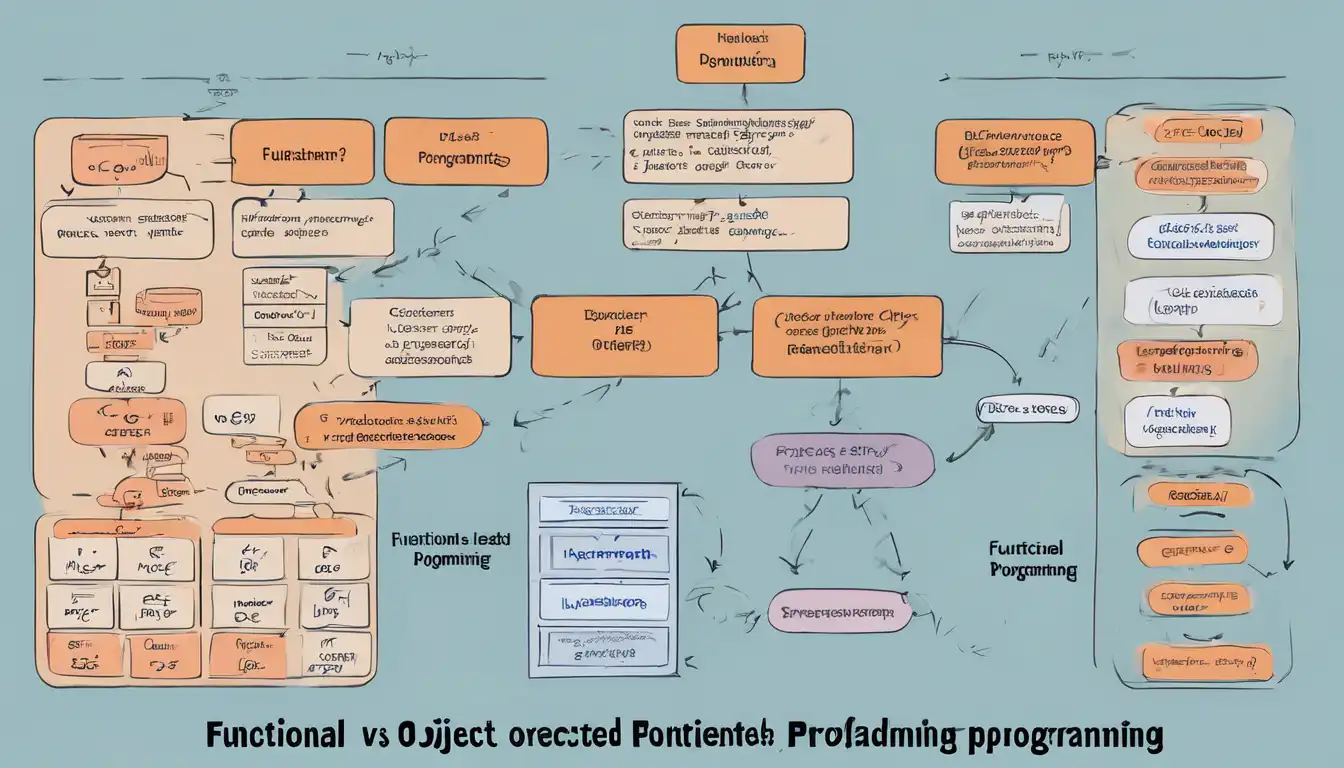Introduction to Programming Paradigms
In the world of software development, understanding the different programming paradigms is crucial for choosing the right approach for your project. Two of the most popular paradigms are Functional Programming (FP) and Object-Oriented Programming (OOP). This article will explore the key differences, advantages, and use cases of each.
What is Functional Programming?
Functional Programming is a paradigm that treats computation as the evaluation of mathematical functions and avoids changing-state and mutable data. It emphasizes the application of functions, in contrast to the imperative programming style, which emphasizes changes in state.
- Immutability: Data is immutable, meaning it cannot be changed after it's created.
- First-class functions: Functions are treated as first-class citizens, meaning they can be passed as arguments, returned from other functions, and assigned to variables.
- Pure functions: Functions have no side effects and return the same output for the same input.
What is Object-Oriented Programming?
Object-Oriented Programming is a paradigm based on the concept of "objects", which can contain data, in the form of fields, and code, in the form of procedures. OOP focuses on the objects that developers want to manipulate rather than the logic required to manipulate them.
- Encapsulation: Bundling of data with the methods that operate on that data.
- Inheritance: A mechanism for creating new classes from existing ones.
- Polymorphism: The ability to present the same interface for differing underlying forms.
Comparing Functional and Object-Oriented Programming
While both paradigms aim to make code more modular and easier to maintain, they approach problems differently. FP is more about "what to solve" using functions, whereas OOP is about "how to solve" by creating objects.
Performance: FP can be more efficient in scenarios where immutability and pure functions reduce bugs. OOP can be more intuitive for modeling real-world entities and relationships.
Scalability: FP scales well in terms of handling operations on large data sets due to its stateless nature. OOP scales well in terms of adding new entities and relationships.
When to Use Each Paradigm
Functional Programming is best suited for: Applications that require high levels of concurrency, data processing tasks, and situations where immutability is a benefit.
Object-Oriented Programming is best suited for: Applications that involve modeling real-world entities, GUI applications, and scenarios where encapsulation and inheritance can simplify code.
Conclusion
Choosing between Functional and Object-Oriented Programming depends on the specific needs of your project. Both paradigms offer unique advantages and can even be used together in the same project to leverage the strengths of each. Understanding these differences is key to becoming a versatile and effective programmer.
For more insights into programming paradigms, check out our articles on Procedural Programming and Event-Driven Programming.
